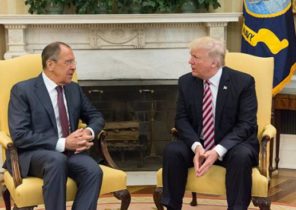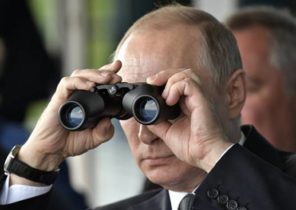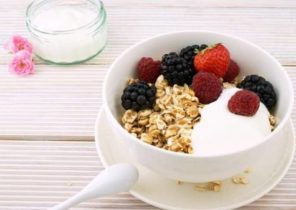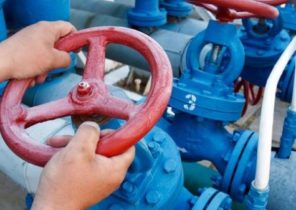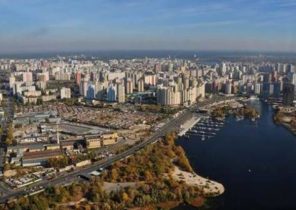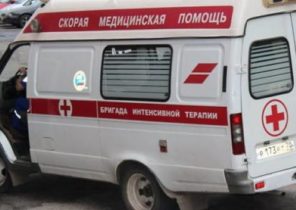At a time when the European food industry was under threat, Ukraine, the breadbasket of Europe, is reforming agriculture. The lifting of the ban on sale of agricultural land not only grants people a constitutional right to sell property, but also opens prospects for investment in agriculture with a huge potential. In the long run it will be of great importance for the economy of Ukraine, and also may affect the world food market and security of supply, says the national investment Council of Ukraine.
Ukraine — the breadbasket of Europe
The fertile black soil, the climate and the scale of production of grain praised Ukraine as the “granary of Europe”. And not without reason. Suitable for cultivation of the territory of Ukraine more than Germany, France and the UK combined. Or, if you like, ten times more than Norway. In addition, the country belongs to the third of the fertile black soil of the planet.
Despite the twenty year ban on the sale of agricultural land, agriculture occupies in the Ukrainian economy is becoming more important. Now it is occupied almost 20% of migrant citizens. The country is among the world’s largest exporters of raw materials such as wheat, barley, corn and soybeans, and their products, e.g. vegetable oil.
However, there is significant potential for further development and increasing exports. The efficiency of agriculture is still lagging behind, as investors are reluctant to invest in the development and use of new technologies of production and processing. To date, such neighboring countries as Poland and Romania, the yield per hectare cropland twice.
Even more obvious the potential of Ukraine, if you compare it to countries in the West, the EU, the statistics of the Food and agriculture organization of the United Nations.
The potential of land reform
In March, the Ukrainian Parliament has lifted a ban on the sale of agricultural lands with the support and under pressure from the EU, IMF, world Bank and the European court of human rights. Before lifting the ban, Ukraine was the only democratic state in the world with such a law — in the same company with countries like North Korea, Cuba and the Congo.
In practice, this means that Ukrainians are again allowed to freely sell agricultural land on the market. In addition to ensuring financial freedom of landlords, the liberalization of the sector in the long term to unlock the potential of the largest of European agriculture.
Professionals are well aware of the connection between property rights and economic development. With the abrogation of the ban quickly the sector can become much more attractive for new investments. Agriculture will have access to loans and investment opportunities to improve efficiency and quality and diversification of the sector.
According to the world Bank, liberalization could provide growth of at least 1.5% a year, or about $ 100 billion over ten years, according to the analytical center EasyBusiness. If events develop according to the liberal script and the ban will be lifted without the introduction of stringent regulations, the growth could reach 5-7%. But because of the new law, which implies a number of limitations reform is still held differently. However, much still demonstrates the potential of Ukrainian agriculture.
The value of and opportunities for Norway
In the period from 2000 to 2015 Norway more than doubled its grain imports, and in the coming years will increase it another two times, says “the Future is in our hands” (Framtiden i våre hender). The increase is associated primarily with the fact that more grain was used in animal feed and vegetable compounds for feeding fish. Simply put, the Norwegian consumers and entrepreneurs will increasingly turn to the international market of raw materials, including his growing segment of the nearby Ukraine.
A few weeks ago, the Norwegian agricultural society Felleskjøpet updated forecasts, which indicate that in the near future our need for importing food and feed grains will increase.
Norwegian fish farming also invests heavily in the development and intends to 2050 in five times to increase production. The industry achieved this goal, you need much more plant material for fish feed than purchased now. According to the industry, today, about 70% of feeds are of vegetable composition. On this basis, the Norwegian centre for agricultural research Ruralis believes that the industry may require 8 million tons of raw materials per year. Mostly these needs will be met through imports of raw materials such as soybean, rapeseed, sunflower and corn, in the production of which Ukraine is already one of the world leaders.
For example, soybeans, today this component of the feed is imported almost exclusively from Brazil. Now almost all soy certified, but we know that its cultivation is associated with deforestation, so the demand for it indirectly contributes to deforestation. While Norway continues to buy soy from Brazil, it supports the industry that is constantly cut down all the forests, says the rainforest Foundation.
Paying look at a country like Ukraine, we show that the problems facing the industry is the concern about the sustainable future are being taken seriously. Under the expanded concept of food security one of our most important industries threaten significant business risks if it is not diversifitsirovat the import markets.
Ukraine for investment
According to the expectations of the Norwegian-Ukrainian chamber of Commerce, the liberalization of the Ukrainian agricultural market will lead to the fact that businesses will start to focus their market strategy on long-term investments and exports of products. This means increased investments in agricultural technology and efficiency.
In the long run it may mean that more raw materials will be processed and packaged directly in the Ukraine. Besides the fact that we, thanks to the free trade agreement will provide the Ukrainian processed agricultural products equal to the products of EU market access, Norwegian technology can be very competitive in Ukraine in everything from the digitalization of systems of irrigation, fertilizer and harvest to the packing of goods.
In addition, the Chapter on investment in our trade agreement promises to Norwegian investors in Ukraine the same conditions as Ukrainian, — and this in a country which in recent years has significantly affected the world Bank’s “Ease of doing business”.
According to our agreement with Ukraine, the parties undertake to continue the liberalisation of trade in agricultural products. The free trade agreement between Ukraine and the EU also implies that on the path to integration with Europe, Ukraine will give its own rules and production standards with the European. The authorities of both countries realized the potential of expanding cooperation. We believe it is high time the Norwegian businessmen and consumers to follow their example and explore Europe’s largest agricultural market.

